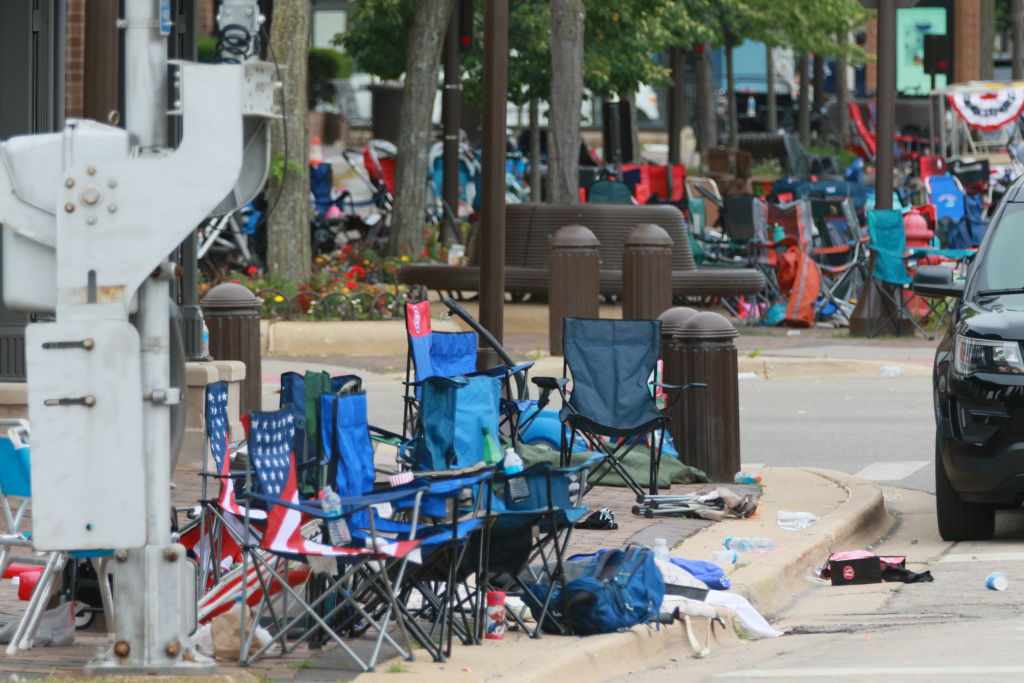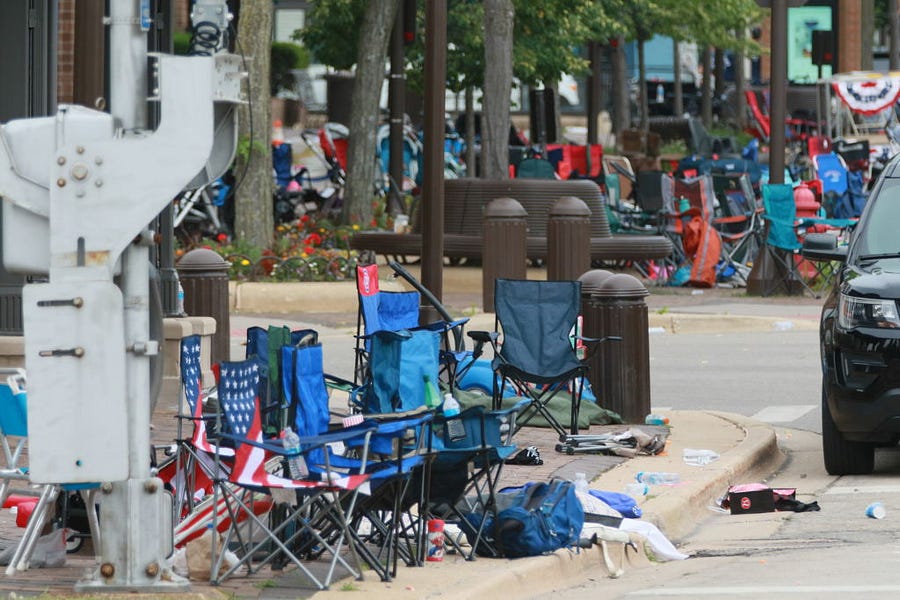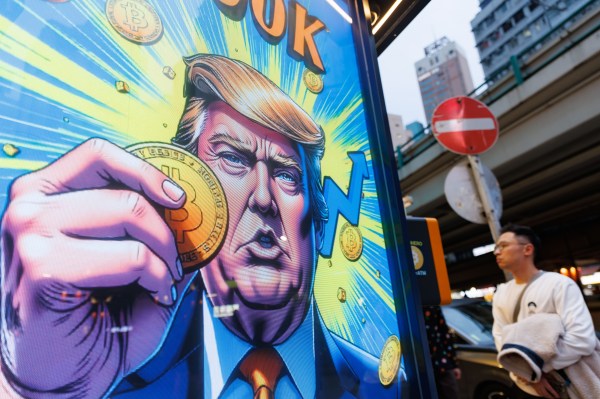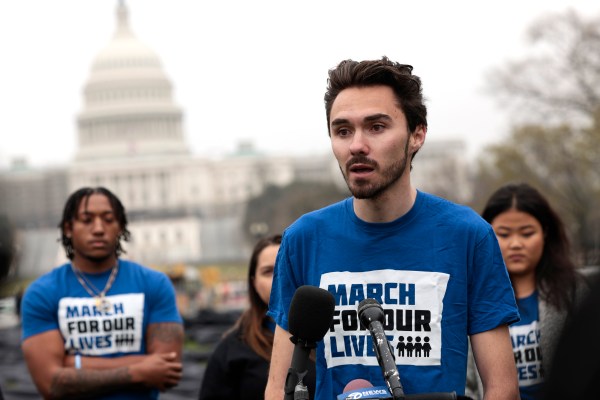Happy Tuesday! The 5th of July should also be a national holiday—our bodies need some more time to digest all that beef.
Quick Hits: Today’s Top Stories
-
Russian forces over the weekend appear to have taken full control of the Luhansk region in eastern Ukraine, with Ukrainian troops withdrawing from the city of Lysychansk in order to avoid being surrounded. Russia is sustaining heavy casualties in its revised quest to control Ukraine’s Donbas area, but its forces continue to plod along methodically, grinding down the opposition. Ukrainian officials claimed Russia fired missiles at a residential area in Odessa on Friday, killing at least 21 people, including civilians and children.
-
At least six people were killed and dozens more injured when a gunman opened fire at a 4th of July parade in Highland Park, Illinois, on Monday. After evading arrest for several hours, a 22-year-old “person of interest” was captured last night and taken into custody.
-
Three people were killed—and nearly 30 others wounded, many “lightly”—after a 22-year-old Danish man opened fire at a shopping mall in Copenhagen on Sunday. The shooter—who police say was “known to people in the psychiatric field”—was charged with manslaughter and will be held in custody in a psychiatric ward for 24 days to undergo a psychiatric evaluation.
-
Dr. Peter Marks—director of the Food and Drug Administration’s Center for Biologics Evaluation and Research—told Reuters late last week the FDA will not require pharmaceutical companies to submit new clinical trial data on COVID-19 vaccines updated for Omicron’s BA.4 and BA.5 subvariants in order to authorize those shots. By relying on existing data from vaccines designed to protect against Omicron’s BA.1 strain—as well as animal studies—regulators hope to expedite the authorization process and roll out boosters ahead of a likely fall surge.
-
Supreme Court Marshal Gail Curley sent letters to Maryland and Virginia officials last week—including Govs. Larry Hogan and Glenn Youngkin—requesting they crack down on the continued protests outside Republican-appointed Supreme Court justices’ homes by enforcing what Curley says are existing anti-picketing laws. A spokesman for Hogan pushed back, claiming the state statute Curley cites is possibly unconstitutional and that Hogan and Youngkin tried months ago—to no avail—to get Attorney General Merrick Garland to address the situation on a federal level.
-
State Department spokesman Ned Price said Monday that, following an “extremely detailed forensic analysis,” the U.S. Security Coordinator (USSC) determined Palestinian-American reporter Shireen Abu Akleh was “likely” killed by gunfire from Israeli military (IDF) positions—though a “definitive” conclusion could not be reached. “The USSC found no reason to believe that this was intentional,” Price continued, “but rather the result of tragic circumstances during an IDF-led military operation against factions of Palestinian Islamic Jihad on May 11, 2022, in Jenin, which followed a series of terrorist attacks in Israel.” Palestinian Authority officials rejected the findings, claiming Israeli troops intentionally shot Abu Akleh.
-
Eurozone inflation reached 8.6 percent year-over-year in June, up from an 8.1 percent annual rate in June and 7.4 percent in April. Energy and food prices accounted for the bulk of the increase; stripping those out, core inflation declined slightly for the first time since January.
-
The U.S. manufacturing sector continued to expand in June, but growth slowed last month to its lowest level since June 2020, according to the Institute for Supply Management’s manufacturing purchasing manager’s index.
-
Pete Arredondo—the police chief of the Uvalde Consolidated Independent School District—told The Uvalde Leader-News he is resigning from his seat on the town’s city council so as not to be a “distraction” after May’s school shooting and what many Uvalde residents have criticized as law enforcement’s lackluster response. Arredondo had already been placed on leave last month in his role as UCISD chief of police.
-
Texas’ Supreme Court ruled on Friday the state can enforce an abortion restriction that’s been on the state’s books since at least 1925, blocking an order from earlier in the week that would have temporarily allowed abortions to resume in the state in a limited capacity.
-
State legislators in New York advanced the Concealed Carry Improvement Act over the weekend, sending to Democratic Gov. Kathy Hochul legislation reforming the state’s gun control laws in the wake of last month’s Supreme Court ruling. If Hochul signs it into law as expected, New Yorkers applying for concealed carry permits will need to display “good moral character,” pass a firearm safety course, and provide data from their social media accounts as part of strengthened background checks.
-
WNBA star Brittney Griner’s trial in Russia began on Friday, months after she was arrested at an airport near Moscow and charged with carrying hashish oil in her luggage. Russia is reportedly looking to use Griner—whom the United States has designated “wrongfully detained”—as a bargaining chip in a potential prisoner exchange to free a prominent Russian arms dealer.
Late start to the week notwithstanding, Dispatch Live returns this evening. Details to follow in an email later today. We hope to see you there!

Tragedy in Highland Park
Across the country, the Fourth of July has evolved over time into a day full of celebration and reflection, filled with both overeating and reverence. Local institutions bring communities together at parades and fireworks shows, children learn tales of their country at its best, adults push off the start of their summer diet one more day.
Chicagoans celebrate the same way, but the holiday and days surrounding it have also developed a darker reputation in the Windy City—as some of the most dangerous days of the year. During the July 4 weekend in 2019, for example, at least six people were killed and 63 injured in shootings throughout the city. Those numbers jumped to 17 and 72 in 2020, and to 17 and 108 in 2021.
The final tally for 2022 is still being calculated—it was at least 9 and 57 through Saturday evening—but odds are it’ll surpass previous highs, particularly if you count the attack that occurred on Sunday less than half an hour north of the city limits.
All hell broke loose ten minutes into Highland Park’s annual Fourth of July parade yesterday morning, with hundreds of the suburb’s 30,000 residents sent scrambling by a gunman firing indiscriminately into the crowd from a rooftop overlooking the festivities, where, according to Highland Park Police Commander Chris O’Neill, he was “very difficult to see.”
“I heard 20 to 25 shots, which were in rapid succession,” Miles Zaremski, a Highland Park resident, told The Chicago Sun-Times. “So it couldn’t have been just a handgun or a shotgun.”
It wasn’t. Witnesses reported seeing a young man brandishing a long gun on the roof, and police later recovered a “high-powered rifle” at the scene, which the gunman fled as law enforcement arrived. By then, he had killed at least six people and wounded more than 30 others. One of the dead was Nicolas Toledo, an older man visiting his grandkids in Highland Park from Mexico. Another was Jacki Sundheim, a teacher at the Gates of Learning Preschool and staff member at the North Shore Congregation Israel. Dr. Brigham Temple said 25 of the 26 patients treated at Highland Park Hospital in the wake of the massacre were gunshot victims, and they ranged in age from eight to 85.
The gunman escaped the scene, and remained at-large for hours, casting an eerie pall over what should have been a joyous day. Residents were encouraged to remain inside as police searched for the suspect, and neighboring cities—from Evanston, to Deerfield, to one of your TMD author’s hometown of Glenview—canceled their parades and firework displays out of an abundance of caution. The Chicago White Sox held a moment of silence prior to their game against the Minnesota Twins, and called off their planned Independence Day festivities.
Initially described only as a thin white man with long black hair, police identified the suspect later in the afternoon as a 22-year-old man driving a silver Honda Fit whose family had longtime roots in the Highland Park area. His father, a small business owner, ran unsuccessfully for mayor in 2019, while the alleged shooter himself maintained an online presence as a rapper, whose music was rife with warning signs of his twisted intentions. “Unfortunately, he’s a Highland Park kid, and people knew his family,” one resident said. “His family has been around a long time.”
Police spotted the suspected gunman a few towns over on U.S. 41 around 6:30 p.m. local time, and after a brief chase, were able to apprehend him. According to a video of the arrest obtained by The Dispatch, the alleged shooter, surrounded by law enforcement on all sides, emerged from his vehicle with his hands up and lay down prostrate as more than a dozen police officers approached on foot, guns pointed directly at him. He was then taken to the Highland Park police station, according to police chief Lou Jogmen. Authorities have not yet revealed any information about a potential motive, or how the shooter acquired his gun.
That didn’t stop Illinois Gov. J.B. Pritzker from calling for stricter gun laws, weeks after President Joe Biden signed bipartisan legislation crafted in the aftermath of May’s Uvalde shooting. “It’s the Fourth of July, a day for reflection on our freedoms,” Pritzker said yesterday. “Our founders carried muskets, not assault weapons, and I don’t think a single one of them would have said that you have a constitutional right to an assault weapon with a high-capacity magazine or that that is more important than the right of the people who attended this parade today to live.” Illinois’ current gun laws are among the strictest in the country, but reports have found a majority of guns used in Chicago crimes come from out of state.
Darren Bailey—the Trump-backed state senator who won Illinois’ Republican gubernatorial primary last week—apologized Monday after initially calling on residents to “move on” from the shooting and “celebrate the independence” of the United States. “My intent was to pray for the victims and those affected by today’s tragedy and for the shooter to be caught and prosecuted without further loss,” he later said, calling for a special legislative session to address crime. “July 4th is supposed to be a holiday for families, for parades, for celebrating the American Dream, but when people don’t feel safe in their own community, they are deprived of that dream.”
The shooting itself is a tragedy, and so are its likely repercussions. Fourth of July festivities—for decades a pillar of local communities like Highland Park—were already on the ropes following years of pandemic cancellations and the continued atomization of society. Between events like yesterday’s shooting and the Waukesha parade attack last Christmas, there are now even more reasons to stay home.
“Fourth of July has always been my favorite holiday of the year,” said Richard Isenberg, a 77-year-old Highland Park resident who was sitting “where we always sit” with his family at the parade when they were forced to flee. “I don’t think that’ll be the way anymore. We’ve come to our last parade.”
Worth Your Time
-
In The Washington Post, Richard Danzig—former Secretary of the Navy—argues the 4th of July is a time to reflect on the uniqueness of America in the grand scheme of history. “Imagine showing our country to a Greek or Roman, to John Locke and Jean-Jacques Rousseau, to the Framers of our Constitution, or to the leaders of any country or city-state over the three millennia in which our species has celebrated what it calls ‘civilization,’” he writes. “First and foremost, they would see a country in which a majority of citizens devote considerable energy to moral discourse: debating the proper balance of embryonic and maternal life, focusing on injustices and inequalities, quarreling in courts and legislatures about how to govern, including when and whether to admit immigrants (now entering this nation at a rate of 1 million per year) as potential citizens. No one before World War II ever experienced a democracy of citizens this numerous, this diverse and this engaged. Why should we be surprised that, having achieved this, the results are untidy, rowdy, even tumultuous?”
-
Ever notice how the people who mention humility the most tend to have it in the shortest supply? Citing a tweet from European Central Bank President Christine Lagarde—that she was “humbled to be awarded an honorary degree by the London School of Economics”—David Brooks dives into the false modesty phenomenon, and why it’s found such a natural home online. “If you’ve spent any time on social media, and especially if you’re around the high-status world of the achievatrons, you are probably familiar with the basic rules of the form,” he writes. “The first rule is that you must never tweet about any event that could actually lead to humility. Never tweet: ‘I’m humbled that I went to a party, and nobody noticed me.’ Never tweet: ‘I’m humbled that I got fired for incompetence.’ The whole point of humility display is to signal that you are humbled by your own magnificent accomplishments. We can all be humbled by an awesome mountain or the infinitude of the night sky, but to be humbled by being in the presence of yourself—that is a sign of truly great humility.”
-
Edmund Burke lived in the 1700s, but the political philosopher “seems to be speaking directly to us in the present,” Daniel Klein and Dominic Pino note in National Review. “Burke devoted the last years of his life to fighting against radicalism, dogmatism, and stubborn, foolish instincts,” they write. “There is something natural about radicalism, and like other wayward natural penchants, like our penchant for sweets, it must be overcome through training and education, through instituting a complex, layered sense of duty. Burke has plenty to tell us about how to go about that task, and don’t be surprised that the words of the 1790s are cutting right to the heart of the matter today. As Burke said, ‘If we do not take to our aid the foregone studies of men reputed intelligent and learned, we shall be always beginners.’”
Presented Without Comment
Also Presented Without Comment
Also Also Presented Without Comment

Toeing the Company Line
-
Haley’s latest Uphill focuses on biometrics and personal privacy. “Members of Congress increasingly agree it is urgent to set clearer privacy parameters for government agencies as they employ biometric tools,” she notes. “Some also want to examine how to empower people to control their own data, or at least provide more awareness of how both the private sector and the government use their information.”
-
“Rules liberate us from having to reinvent the wheel in every situation … [but] there are scores of familiar scenarios where moral law trumps conventional law,” Jonah notes in Friday’s G-File. “Mike Pence unconstitutionally deployed the U.S. military to quell the riots on January 6. He had no authority to do it. … But Pence broke the rules for the right reasons because there were more important rules at play.”
-
This 4th of July, David sees three distinct Americas attempting to coexist as one. “America isn’t just red and blue. It’s red and blue and just plain tired,” he writes in Sunday’s French Press. “Who are these tired Americans? The polling answer from the survey is the two-thirds of our neighbors and citizens (from across the political spectrum) who are fed up with polarization, forgotten in public discourse, flexible in their views, and still believe we can find common ground.”
-
Chris Stirewalt’s Monday column poses the same question Americans have been faced with every Independence Day since the first one: Was it worth it? “Have the blessings of liberty outweighed the pain we have suffered and inflicted along the way?” he asks. “I know what my answer is, but my prayer on this sacred day is that more Americans could see the magnitude of the gift of the founding and the common cause that made it possible.”
Let Us Know
Has attendance at your local Fourth of July festivities been declining?







Please note that we at The Dispatch hold ourselves, our work, and our commenters to a higher standard than other places on the internet. We welcome comments that foster genuine debate or discussion—including comments critical of us or our work—but responses that include ad hominem attacks on fellow Dispatch members or are intended to stoke fear and anger may be moderated.
With your membership, you only have the ability to comment on The Morning Dispatch articles. Consider upgrading to join the conversation everywhere.